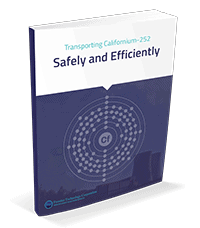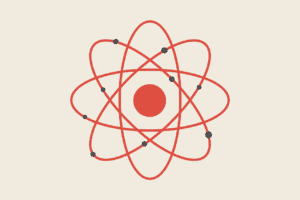Nuclear energy offers a variety of positive attributes that benefit a wide range of industries.
Before discussing the advantages of nuclear energy, it’s important to understand what it is and how it can be harnessed as an energy source. It’s also helpful to know how it compares with other energy sources in terms of costliness, environmental impact, and stability. In this post, we examine some of the benefits nuclear energy can offer.
The Advantages of Nuclear Energy
Nuclear power results from nuclear fusion or fission produced by modifying materials on an atomic scale. Generally operating on uranium or plutonium, nuclear energy bombards heavy metals with neurons to spark fission or fusion processes that create thermal energy. This thermal energy heats water into steam, which spins turbines to create electricity.
On December 20, 1951, the United States developed the use of nuclear power for electric applications for the first time in Arco, Idaho. Today, there are currently 60 operating nuclear power plants with 98 reactors in the U.S., spread over 30 states. The U.S. is the leading national producer, producing over 30% of the world’s nuclear power.
As an energy source, nuclear energy offers many advantages, including:
Inexpensive
Nuclear power plants incur low operational costs because they rely on relatively simple operations. Additionally, nuclear plants only need to refuel every 18–24 months, meaning that fluctuating fuel prices affect them less than more volatile industries like oil and natural gas. Heavy metals like uranium, nuclear power’s main energy source, appear throughout the world and are only needed in small amounts, meaning that they also cost less.
Environmentally Friendly
Compared with other types of energy, nuclear power stands out as an environmentally friendly energy source. Nuclear power generates clean energy by bombarding uranium with neutrons as opposed to burning fossil fuels.
Nuclear reactors do not produce direct carbon dioxide emissions, and any indirectly produced emissions have negligible impacts on the environment. In addition, most nuclear waste has a fairly low level of radioactivity.
Requires Low Amounts of Fuel
Heavy metals have higher energy densities than fossil fuels. This means that smaller quantities of nuclear fuel provide greater amounts of energy than comparable amounts of other materials. Because of this, nuclear plants require fewer resources spent on acquiring and storing fuel.
Stability
You can pair nuclear energy with other renewable forms of energy such as wind and solar. However, on its own, nuclear energy provides a more stable form of energy than wind and solar power because nuclear power plants can operate in any environmental condition.
Nuclear power plants rarely pause their operations because they do not rely on external factors to operate efficiently. This makes nuclear power one of the most reliable energy options available.
High Degree of Safety
As technology continues to advance, nuclear energy is becoming an increasingly safe and stable option for energy production. As Bill Gates said, “Nuclear energy, in terms of an overall safety record, is better than other energy.”
Safety is paramount at every U.S. nuclear power plant, and every facility incorporates a well-developed and much-tested set of safety procedures. In nuclear power’s history as an energy source, there have only been three major incidents worldwide. While these incidents generated a large amount of media coverage and attention, they happened against the backdrop of over 60 years of nuclear production, totaling more than 17,000 cumulative reactor years of safe nuclear power production in 33 nations.
Industries Benefiting From Nuclear Power
Nuclear energy touches multiple industries, including (but not limited to):
- The medical sector, which uses radiation to diagnose and treat diseases such as cancer
- Food and agriculture, which uses radiation to genetically modify crops
- Consumer product, which relies on radioisotopes
- A wide range of industrial applications, which are fueled by nuclear power
Revolutionize Your Industry with Nuclear Energy
Nuclear energy has multiple benefits associated with it. It touches dozens of industries and sectors and comes with a versatile range of uses.
Frontier Technology Corporation offers an extensive product line for various nuclear applications. To request a quote for your nuclear energy application needs, contact us today!


